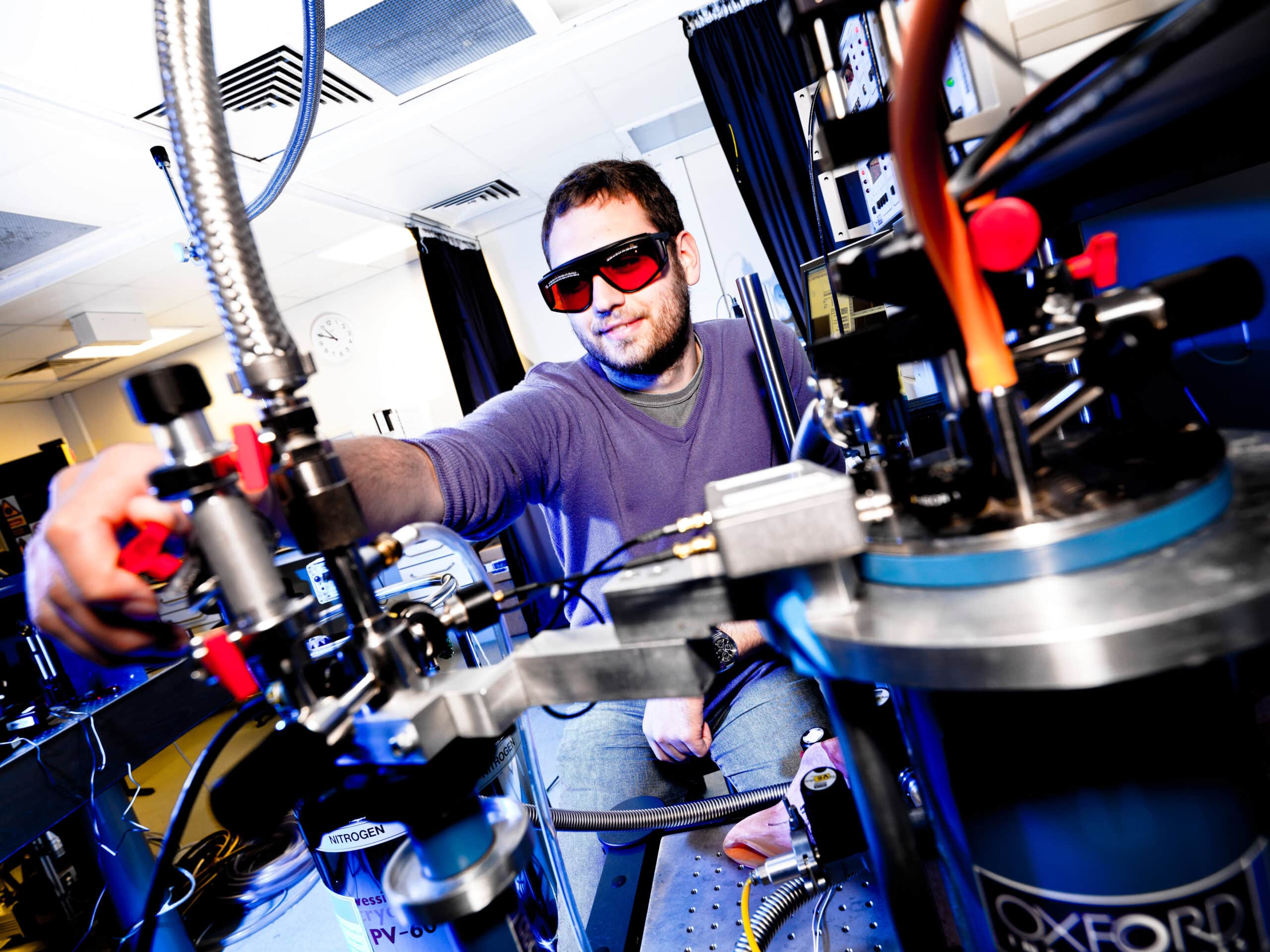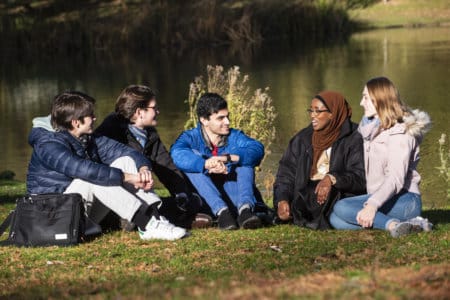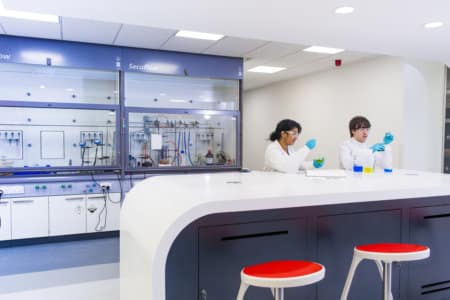Born and raised in Nanjing, China, Dengwen Wu developed an interest in chemistry as a high schooler. Watching substances interact and transform through simple experiments made him curious about the principles that governed these complex processes. “This initial fascination, combined with my passion for problem-solving and analytical thinking, solidified my decision to pursue a degree in chemistry,” he explains.
“The University of Surrey‘s renowned chemistry programme provided the perfect platform to explore this captivating subject further. Its consistently high rankings in the field of chemistry further confirmed its academic excellence and the quality of education I would receive.”
True enough, the Chemistry BSc (Hons) offered by the School of Chemistry and Chemical Engineering turned out to be everything Dengwen hoped it would be and more. It offered a balanced mix of theoretical knowledge and hands-on laboratory experience, allowing him to develop both his analytical and practical skills. In the classroom, he explored various topics showcasing how chemistry could solve real-world problems.
To him, Forensic Chemistry lessons stood out the most due to their breadth and interactiveness, enabling Dengwen and his peers to explore various forensic techniques, such as fingerprint analysis, DNA profiling, and chemical analysis of trace evidence through practical sessions and case studies.
Such intricate topics were easy to grasp, thanks to the University of Surrey’s supportive faculty. Dr. James Wright is one of Dengwen’s favourites for his role in helping him cross the finish line. “As my final year project demonstrator, he guided and supported me throughout my research,” Dengwen explains.
“His approachable and kind nature created a comfortable environment where I felt confident seeking his advice. He also provided valuable insights, constructive feedback, and practical solutions to challenges I encountered during my project, which sheds light on the design of novel materials, drug discovery, and catalysis.”

Students gain remarkable hands-on experience, which equips them to embrace future challenges with confidence. Source: University of Surrey
The University of Surrey’s industry connections were just as fundamental to Dengwen’s professional development. While he did not opt to pursue a placement, he did gain industry experience through visits to prestigious organisations like Cefas and GSK. To ensure learners are ready to make an impression in such spaces, the university hosts career fairs, networking events, and workshops (in CV writing, interview preparation, and professional communication) — all of which ensure tomorrow’s professionals have ample experience interacting with industry experts while acquiring a better understanding of their potential career paths.
MEng Chemical and Process Engineer graduate Adiva Peters from the Netherlands also gained a better understanding of the various doors she could unlock with her University of Surrey qualification.
“With the skills and knowledge attained at the university, I know I have the right foundation to progress as an engineer,” she says. “The programme has greatly enhanced
My skills in problem-solving, listening, time management, teamwork, and analytics. I now know that my long-term goal is to develop my skills further and teach what I have learned to
newer generations of aspiring engineers.”
Adiva owes this realisation to the experiential learning opportunities she took on as a student — many of which were hosted by the Fluor pilot plant facility. This space exposes Department of Chemical and Process Engineering students to state-of-the-art equipment replicating what they will eventually use in the industry.

The Fluor pilot plant provides students with immersive, industry-standard learning experiences. Source: University of Surrey
The Department offers unlimited access to well-equipped laboratories with advanced instrumentation, including spectroscopy, chromatography, and microscopy tools, as well. It also provides access to computational resources and software for modelling and simulations.
Plenty of Adiva’s favourite lessons were just as interactive. “Some of these classes were control, heat transfer, transfer processes, separation processes, and fluid mechanics,” she says. “I loved these lessons because the lecturers used unique teaching methods that kept us engaged while always ensuring we felt comfortable enough to reach out when we needed help.”
With all this in mind, it’s easy to understand why according to the Graduate Outcomes Survey 2023, 95% of Surrey undergraduates are in work or further education, and 88% of graduates agree that their current activity is meaningful. Effectiveness is further validated by Complete University Guide 2024, which places Surrey’s chemistry and chemical engineering degrees among the UK’s top 25, with a remarkable 80% student satisfaction rate for chemistry programmes. Click here to learn more about studying chemistry and chemical engineering at Surrey.
Those seeking to explore the life of medicine, from drug discovery to manufacture and quality control, can join the new Pharmaceutical Sciences MSc programme. It features the same unique Surrey combination of hands-on learning, dedicated laboratory facilities, and focus on employability. Interested? Register for open events and order a prospectus.
Follow the University of Surrey on Facebook, X, LinkedIn, Instagram, TikTok, and YouTube













